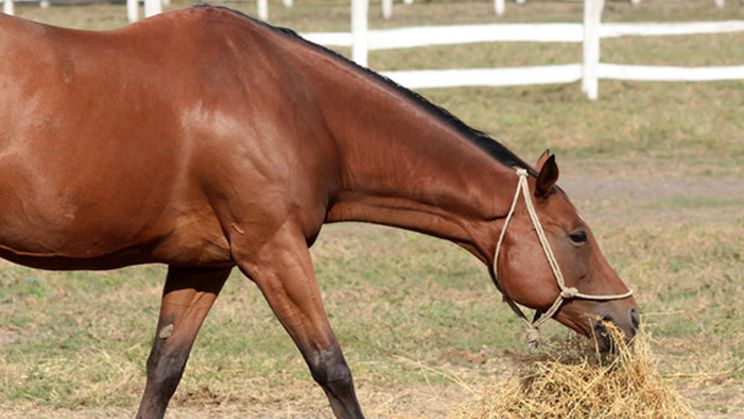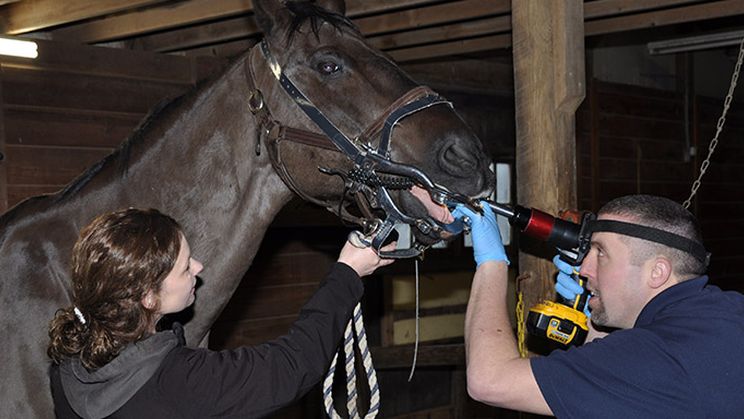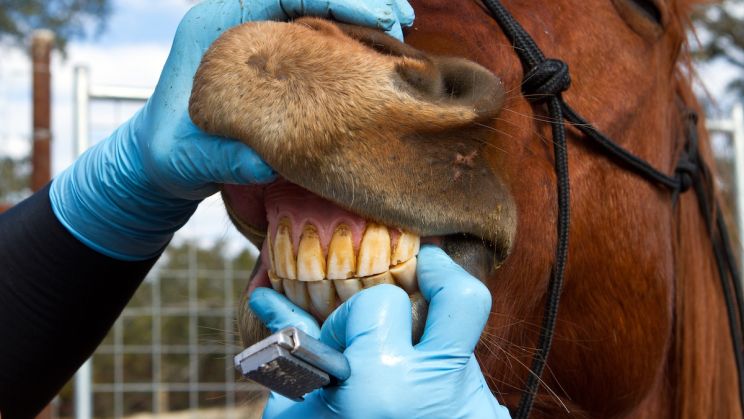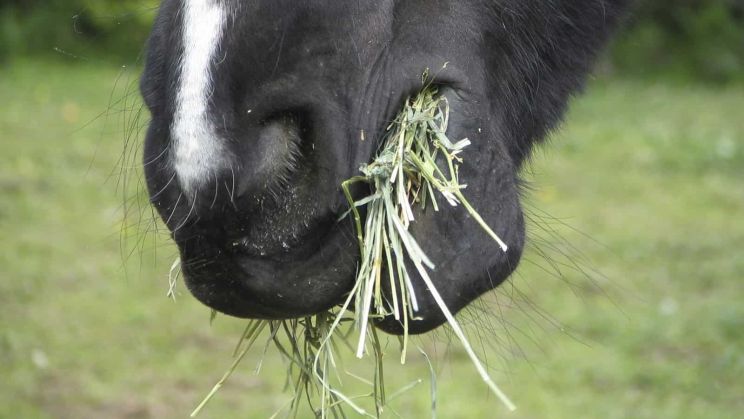Horses, majestic and powerful creatures, rely on their teeth for essential tasks like grazing, eating, and grinding food. Understanding the anatomy and function of a horse’s teeth is crucial for veterinarians and horse owners alike. In this article, we delve into the fascinating world of equine dentition, exploring the different types of teeth, their role in digestion, common dental issues, and the importance of regular dental care for horses.
The Anatomy of a Horse’s Teeth
A horse’s mouth contains a combination of different types of teeth, each designed for specific functions. Typically, adult horses have 36 to 42 teeth, depending on their age and gender. The key types of teeth include:
Incisors: These are the front teeth located in the front of the horse’s mouth. They are used for nipping and grasping grass and other forage. Adult horses usually have six incisors in the upper jaw and six in the lower jaw.
Canines (Tusks): These are found only in male horses, known as stallions and geldings. Canines are long, pointed teeth located just behind the incisors. While they have limited functional use in modern horses, they are thought to have played a more significant role in the horse’s evolutionary past.
Premolars and Molars: These are the grinding teeth located towards the back of the horse’s mouth. Horses have between six to twelve premolars and molars in each quadrant of the mouth (upper and lower jaws), making a total of 24 to 36 in the whole mouth.
The Importance of Chewing and Grinding

A horse’s teeth are essential for the efficient breakdown of food during the digestion process. The incisors play a vital role in grazing and nipping grass and forage, allowing the horse to consume adequate nutrients from the vegetation.
Once the food is in the mouth, the horse begins the chewing process, moving its jaw in a circular motion to grind the food. The premolars and molars, with their large flat surfaces, are well-suited for this task. Proper grinding ensures that the food particles are adequately broken down, facilitating better digestion and nutrient absorption in the digestive tract.
Dental Issues in Horses
As with any animal, dental issues can arise in horses, affecting their ability to eat, chew, and digest food properly. Some common dental problems in horses include:
Dental Malocclusions: Malocclusions refer to misalignments or abnormalities in the horse’s teeth, which can lead to sharp points or hooks forming on the edges. These sharp points can cause pain and discomfort in the mouth and interfere with proper chewing.
Wolf Teeth: Wolf teeth are small, peg-like teeth that may appear just in front of the upper premolars. Not all horses have wolf teeth, and they can cause issues if they interfere with the bit when ridden.
Dental Overgrowth: In some cases, horses may experience dental overgrowth, where the teeth grow too long and prevent proper chewing and grinding.
Tooth Loss and Wear: As horses age, they may experience natural tooth wear or tooth loss, which can affect their ability to chew effectively.
Regular Dental Examinations and Floating

To ensure the overall health and well-being of horses, regular dental examinations and dental floating are essential components of equine dental care. During dental examinations, veterinarians and equine dentists thoroughly inspect the horse’s mouth, looking for any signs of dental issues or abnormalities. They use specialized tools and equipment to examine the incisors, molars, and premolars, ensuring that the teeth are in proper alignment and have no sharp points or hooks.
Dental floating is a procedure in which sharp points or edges on the teeth are filed down to restore a smooth and even chewing surface. This process, also known as “floating the teeth,” helps prevent oral discomfort and pain, which can arise when sharp points irritate the cheeks and tongue. By correcting dental malocclusions and removing sharp points, dental floating improves the horse’s ability to chew and grind food effectively.
For young horses, regular dental examinations are particularly crucial to monitor the eruption of their deciduous (baby) teeth and ensure that they shed on schedule to allow the permanent teeth to emerge properly. Early dental care for young foals helps establish a strong foundation for their dental health as they grow into adulthood.
As horses age, annual dental check-ups become increasingly important to address age-related dental changes. Older horses may experience tooth wear or tooth loss, leading to potential issues with chewing and grinding. Regular dental care for senior horses includes monitoring for dental problems and adjusting their diet to accommodate their changing dental needs.
The Role of Balanced Diet in Dental Health
Maintaining a balanced diet is paramount for the dental health of horses. Providing horses with high-quality forage, such as hay and pasture, promotes natural chewing behavior, which is essential for dental wear and digestion. Chewing hay and fibrous forage helps keep the teeth properly aligned and worn down, preventing dental overgrowth and sharp points.
A diet that requires extensive chewing is advantageous for horses’ dental health. The act of chewing tough fibrous material, like hay, helps naturally wear down the teeth, maintaining a more even chewing surface. Additionally, horses need to chew for an extended period to fully break down the fibrous material, which aids in the digestive process.
It is important to avoid feeding horses a diet that is too soft or lacks fibrous materials, as this can lead to dental issues such as overgrown teeth. Feeding hay and providing access to pasture are excellent ways to encourage natural chewing behavior and maintain healthy teeth.
Dental Care for Specific Life Stages

Different life stages of horses require specific attention to their dental health. For young foals, proper monitoring of the eruption of deciduous teeth is essential. Equine dentists check for retained baby teeth and ensure that they are shed at the appropriate time. Early dental care for foals helps prevent potential dental problems and ensures the proper development of the permanent teeth.
As horses enter their adult years, regular dental examinations become routine to address any dental issues that may arise. Dental floating may be required to maintain a balanced bite and prevent sharp points from forming. Proper dental care for adult horses contributes to their overall health and performance.
For senior horses, dental care is crucial to address age-related dental issues and tooth loss. Older horses may have worn-down teeth or missing teeth, which can affect their ability to chew effectively. Equine dentists may adjust the diet and dental floating procedures to accommodate the specific dental needs of senior horses.
Dental Health and Overall Well-Being
A horse’s dental health is closely tied to its overall well-being. Dental issues can cause pain and discomfort, leading to weight loss, poor performance, and behavioral changes. Maintaining proper dental health through regular dental care and a balanced diet not only promotes efficient digestion but also enhances the horse’s quality of life.
Horses with healthy teeth are more likely to chew their food thoroughly, aiding in the breakdown of nutrients and maximizing nutrient absorption in the digestive tract. Proper dental care also contributes to the horse’s comfort and reduces the risk of dental-related issues that can impact their performance and behavior.
Equine dental care is a crucial aspect of maintaining a horse’s overall health and well-being. Regular dental examinations and floating, along with a balanced diet that encourages natural chewing behavior, are vital for the horse’s dental health at every life stage. By prioritizing dental care, horse owners and veterinarians can ensure that these magnificent creatures continue to graze, chew, and grind their way through life with comfort and vitality.
Keywords: equine dental care, dental examinations, dental floating, balanced diet, dental health, life stages, overall well-being, horse performance, natural chewing behavior, dental issues.
